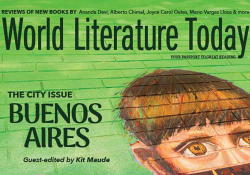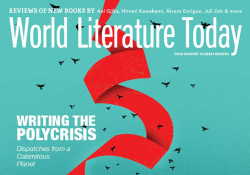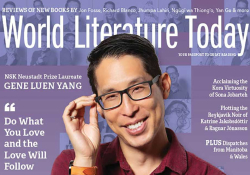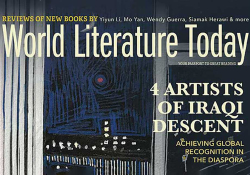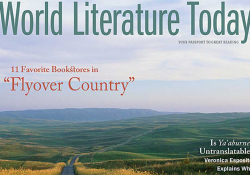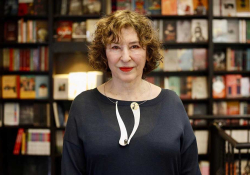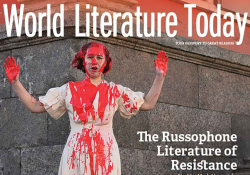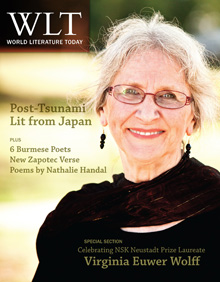EDITOR'S NOTE, January 2012
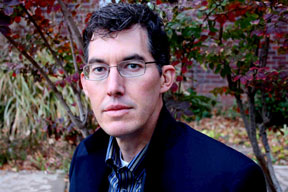
Toward the end of her acceptance speech upon receiving the 2011 NSK Neustadt Prize for Children's Literature (page 48), Virginia Euwer Wolff spoke of "Homo sapiens and homo ludens: man the thoughtful, man the playful. We cannot not be mindful of this beautiful and confounding set of warp and weft in our work." One of the great pleasures of getting to meet authors like Jinny, as many who know her well affectionately call her, is that feeling of being inspired just by conversing with someone who has a genuine interest in who you are and what you have to say. And when it comes to the "warp and weft" of influences in her work, she is as passionate about two of the performing arts—music and theater—as she is about great works of literature and the effect they can have on readers' lives. That passion even comes through in routine correspondence, much of which I've been exchanging via email with Jinny over the past few years.
One of the frequent touchstones in our correspondence is classical music, and the great composers of the Western canon—Mozart, Beethoven, Schumann, Brahms, Mahler. Jinny's immersion in music came from her mother, who was a Presbyterian organist on Sundays and also played classical piano in their home under the shadow of Oregon's Mt. Hood. Jinny took up the violin at the age of eight and to this day routinely performs with ensembles throughout the Northwest. Once we were writing to each other about the last movement of Beethoven's final string quartet, written in 1826–27, at the very end of his life. I told her that I thought the "Muß es sein? Es muß sein!" (Must it be? It must be!) motif was more triumphant than tragic, in a positive sense—it could only be thus. She replied:
Despair or triumph? I don't know, of course. I would like it to be resignation, acceptance: "This is what it is. . . ." I know that many of us, in the darkest hours, come to a sort of a hint of equilibrium, and we nod our heads and think: This is what it is. Of course I don't know, though. I've spent so many years in awe and fear of Beethoven, and have moved closer to him in the last decade, so that now I play him a lot. . . . I'm coming to think of Beethoven as a friend: gruff, lyrical, daunting, threatening, sly, joking, mournful, doleful, exquisitely gentle, thunderous. A man for the twenty-first century.
Of course, the interplay of words and music is primordial. The epic poets, griots, psalmists, and troubadours wove the two in performance, and the vocal music repertoire of cantatas, oratorios, masses, and opera is one of the richest legacies in our culture. At the level of form and technique, writers continually draw on the resources of music. In Jinny's "Make Lemonade" trilogy, written in poem-like stanzas—the word stanza derives from the Latin for "room," she reminds us—these line breaks provide "natural breathing spaces, little recesses of thought" at the end of each line, and the voices of the characters leap off the page and are truly embodied when performed out loud. What starts as formal technique is enriched by emotion and compassion.
Deep human understanding, too, is part of the shared aesthetic of music and literature. One of the great achievements of Jinny's novels lies in what I would call the choric wisdom of the characters she portrays. On the surface, her characters live out their lives and attempt to solve the problems of daily existence, but taken together, their voices create the same effect that the chorus in a Greek tragedy (or Beethoven's Ninth Symphony, for that matter) might achieve: "joy and sorrow, hilarity and lament, the faces of tragedy and comedy within a millimeter of each other," in her words. Homo sapiens and homo ludens. Lyrical expression and emotional depth. No matter your age, and no matter your circumstances in life, the warp and weft of music and literature are deeply woven into our existence.
